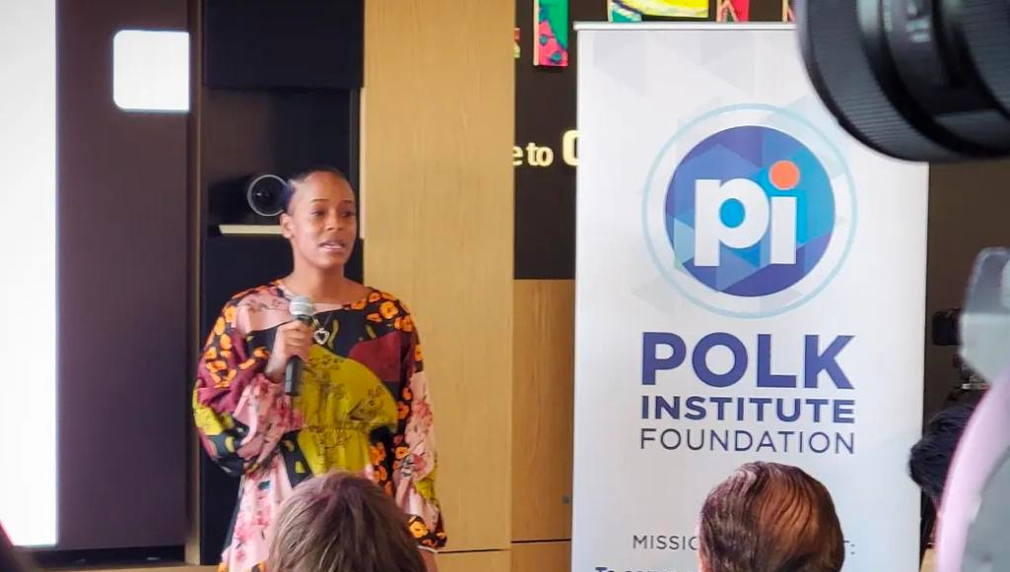BIPOC Legacy Businesses Circle of Trust
The Polk Institute in conjunction with the LA Urban League will provide a unique one year Legacy Cohort program for Underrepresented Black & Brown (UBB) Legacy Businesses in Los Angeles County. Our program strategy is to create mini-legacy ecosystems designed to sustain their businesses for future generations with the overarching goal of addressing and solving the critical need of transferring wealth and business ownership. PI will provide coaching and mentorship to the original (or second generation) participating business owners.

Please list the organizations collaborating on this proposal.
Los Angeles Urban League
What is the primary issue area that your application will impact?
BIPOC- and Women-Owned Businesses
In which areas of Los Angeles will you be directly working?
County of Los Angeles
In what stage of innovation is this project, program, or initiative?
Pilot or new project, program, or initiative
What is your understanding of the issue that you are seeking to address?
Minority owned businesses especially those owned by the Black and Brown community rarely exceed $1MM in sales and do not create legacy businesses to close the wealth gap or offer a wealth transfer to subsequent generations. The scope and scale of the problem is such that 80% of Black and Brown businesses create no legacy or transfer of wealth once the founder dies. Our program takes businesses of 10 years or more in Los Angeles County and helps them build a legacy business above $1MM in sales and sustainable into the 2nd or 3rd generation thus closing the wealth gap. Stanford University did a 2018 study of Hispanic businesses and found that 97% of them never reached $1MM in sales. Without specific data on Black businesses, one can conservatively assume this Stanford statistic would hold true. This has gone on too long in the BIPOC community where businesses disappear once the founder dies. We will provide succession planning and other tools to build a sustainable business.
Describe the project, program, or initiative this grant will support to address the issue.
Many small business or entrepreneurial organizations focus on helping start-ups or micropreneurs grow their business. The Polk Institute in partnership with LA Urban League Legacy Business Circle of Trust cohort members consist of LA County based minority or women owned businesses that have been in business for at least 10 years, are coachable, and looking to grow/sustain their business for future generations. The businesses in the cohort create a CEO peer advisory group called the Circle of Trust (COT). COT cohorts have monthly all day meetings with peer CEOs facilitated by Gary Polk. These meetings are hosted usually at a COT member location and consist of 4 hours of member problem solving for the cohort companies and then 3 hours of Continuing Entrepreneur Education (topics are requested by the cohort), there is networking time over meals. In addition monthly 1:1 Coaching with Mentorship is provided. Strict meeting rules are adhered to with a Be Here Now philosophy enforced: no cell phones or other electronic devices during meeting sessions (okay during meal breaks.) Start on time, follow schedule and stay for the complete day.
Describe how Los Angeles County will be different if your work is successful.
In five years, we will have served 100 underrepresented Black and Brown members, by relaunching more sustainable and scalable businesses. If 80% of our 100 legacy businesses served increase sales by $100,000 that equates to $8MM in in increased sales by Black and Brown owned businesses in Los Angeles County over the next five years. If 80% of our 100 Legacy businesses served creates 2 new jobs that will be 160 new jobs created over the next five years, 10 new jobs x 80 is 800 jobs. This means 800 people are no longer relying on welfare and 80 Black and Brown Businesses have closed the income gap by using good old American entrepreneurship through innovation and job creation. We will create a Welfare Withdrawal effect by replacing this mindset with legacy business ownership and transfer of wealth via business ownership. If 60% of our Legacy Cohort Member businesses become certified as B-Corporations that means 60 businesses will foster the triple bottom line of People+Planet+Profit.
What evidence do you have that this project, program, or initiative is or will be successful, and how will you define and measure success?
Legacy cohort members will create a Growth Plan to increase sales and number of employees that will sustain their business for years to come along with a Management Succession/Exit Strategy Plan. Plan A is to transfer to the next generation, Plan B is to transfer to others. Members will be certified as Minority Business Owned or Women Business Owned and learn essentials to develop procurement strategies with major corporations and government agencies. After the first year, Legacy business owners will be given the opportunity to continue the program. Our projected goal is that Members will continue to participate for at least the next 5-7 years or more. This sustainability projection assumes that the CEO will develop a strong bond among their fellow CEOs and realize the value of a CEO-level Peer Advisory type organization. The first legacy cohort consists of 12 companies with 13 participants. The demographic makeup is as follows: 9 Males, 4 Females; 9 Blacks, 2 Whites, and 2 Hispanics.
Approximately how many people will be impacted by this project, program, or initiative?
Direct Impact: 120
Indirect Impact: 1,000
Describe the specific role of the partner organization(s) in the project, program, or initiative.
The Los Angeles Urban League will make referrals of Minority and Women owned businesses to be considered for the legacy program. They will support outreach and recruitment of the program's target market. The Los Angeles Urban League with over 100 years of service to the BIPOC community in Los Angeles is particularly well-suited to identify and refer potential legacy qualifying businesses.